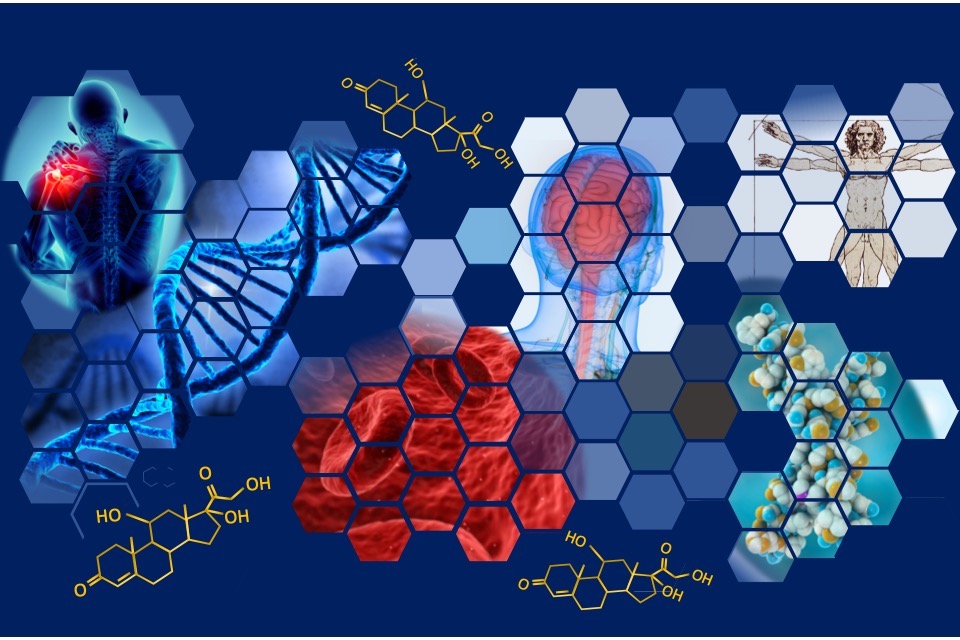Department of Pharmacology and Physiology

A Letter from the Chair
Welcome to the Saint Louis University Department of Pharmacology and Physiology, a vibrant multidisciplinary, highly collaborative, supportive, inclusive and dynamic department. Our mission is to:
- Provide outstanding graduate and medical student training
- Provide multidisciplinary research opportunities for post-doctoral fellows
- Advance scientific knowledge through research and scholarly activity
- Advance the development of novel therapeutics to improve human health
Our faculty, students and postdoctoral fellows conduct research in different areas, including pain, metabolic disorders, neuroinflammatory diseases, cancer, proteomics, medicinal chemistry and translational research.
We have an excellent success record in securing research funding from the National Institutes of Health, the Department of Defense, the National Science Foundation, private foundations and the private sector. In addition, the NIH has continuously funded our T32 training grant in pharmacological sciences for over 30 years. These prestigious and highly competitive training grants are awarded to only a few programs nationwide each year, thus underscoring our graduate program's high quality and national recognition.
Our students and postdoctoral fellows secure prominent positions in academia, government, biotech and pharmaceutical companies after completing their research training here at SLU.
The department benefits from outstanding core research facilities at the medical school as well as the wider University. We are the home base of the Institute for Translational Neuroscience, which spans many schools and departments within the University, and we also offer access to membership in other exciting collaborative centers, including the Institute for Drug and Biotherapeutic Innovation and the Institute of Clinical and Translational Sciences.
Multiple generous internal funding mechanisms are also in place to support the acquisition of pilot data for major grant proposals.
Department members have access to the nationally-acclaimed Cortex Innovation Community and multiple local startup-supporting institutions that are part of the fast-growing, cutting-edge medical and biotechnology community operating actively throughout the St. Louis region.
I invite you to explore our website and learn more about us and our work. While you are here, look at our exciting recruitment opportunities that will propel the department to its next level of research and academic success.
Daniela Salvemini, Ph.D.

William Beaumont Professor and chair
Department of Pharmacology and Physiology
Professor, Department of Psychiatry and Behavioral Neuroscience
Director, Institute for Translational Neuroscience
Saint Louis University School of Medicine
Fellow, Saint Louis Academy of Science
Fellow, National Academy of Inventors
Pharmacological Sciences Training Grant
The SLU School of Medicine Department of Pharmacology and Physiology administers the Ruth L. Kirchstein National Research Service Award Institutional Predoctoral Training Program in Pharmacological Sciences (T32 GM008306). Our goal is to develop a diverse pool of outstanding scientists trained in modern principles of drug action and discovery.
Students are drawn from graduate programs in biochemistry, molecular biology, biology, biomedical engineering, chemistry, molecular microbiology and immunology, and pharmacology and physiology.
Currently, there are 31 preceptors mentoring students on research projects that contain important elements of pharmacology and/or drug discovery across a wide range of disciplines. Students in the training program receive 12 months of financial support and continued mentoring and guidance for their time at SLU.
For more information about our training program, please select the blue “NIGMS T32 Training Program” tab at the top of this page. If you are a first or second-year predoctoral student in one of the six aforementioned graduate departments and would like to participate in our training program, please contact Gina Yosten, Ph.D., at gina.yosten@health.slu.edu.